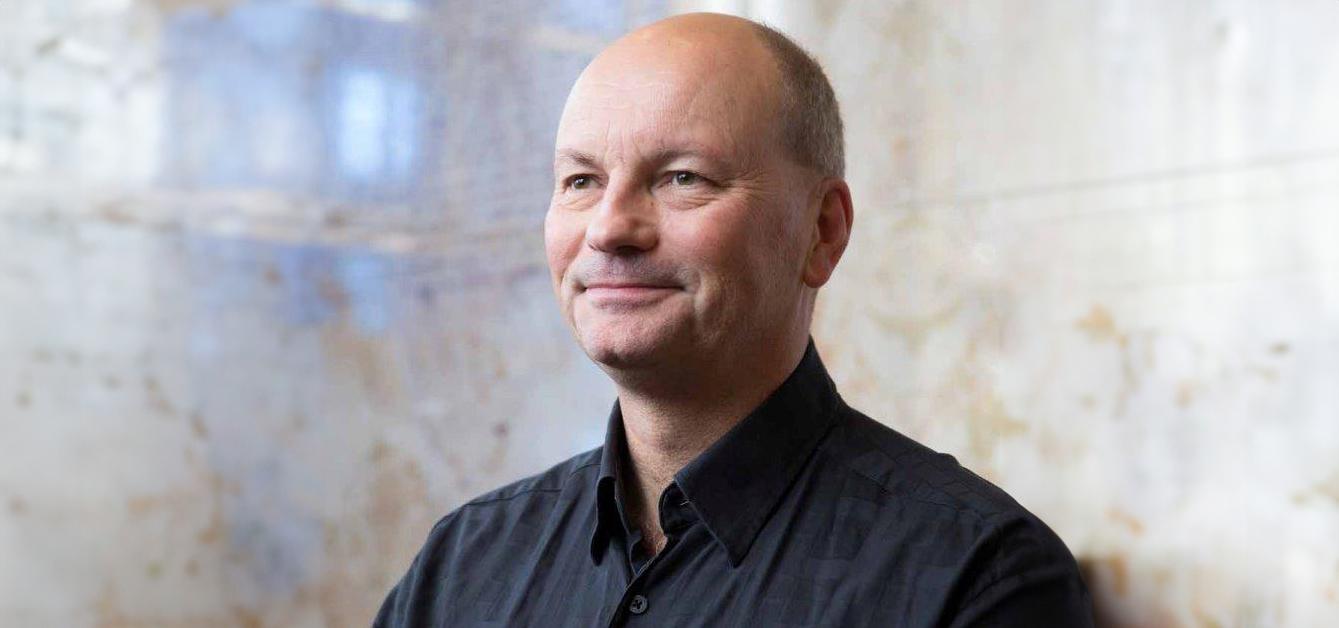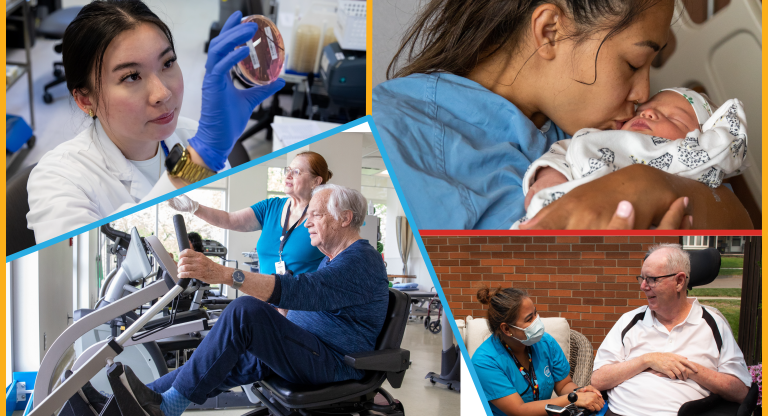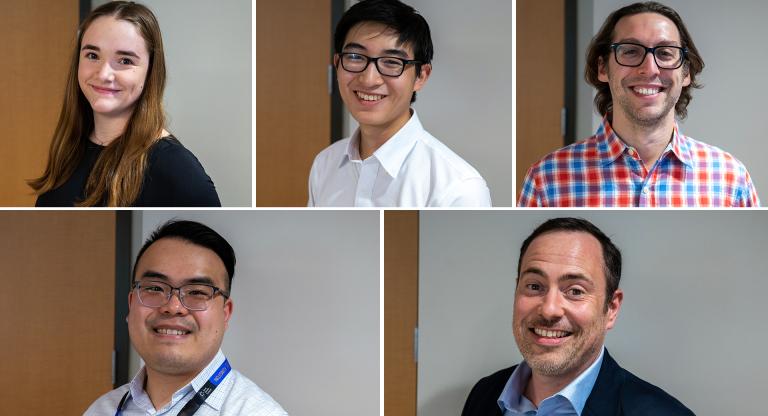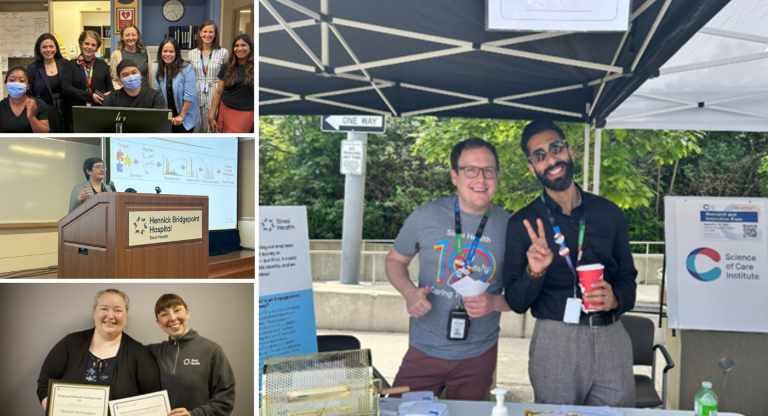Dr. Ross Upshur completes tenure as head of research at Hennick Bridgepoint

Dr. Ross Upshur can reflect with pride as he completes his term as Scientific Director of the Bridgepoint Collaboratory for Research and Innovation, a role he has held since 2015.
Dr. Ross Upshur can reflect with pride as he completes his term as Scientific Director of the Bridgepoint Collaboratory for Research and Innovation, a role he has held since 2015.
Under his leadership, the Collaboratory became a vanguard of care innovation for complex patient needs, especially among older adults facing multiple health issues, medication challenges, and societal hurdles. It championed the idea that such multifaceted health conditions are the norm and not the exception, calling for new models of care. Engaging in what’s known as health services research, researchers at the Collaboratory explored how social factors, economic structures, health-care organizations, technology, and personal behaviour impact the type of care an individual receives – and ultimately their health and well-being.
“Dr. Upshur’s career has been one of creativity and challenge to conventional wisdom in health care. Ross has always had the ability to effortlessly make complex problems understandable. Humour and generosity have punctuated his leadership. Ross's legacy includes so many leading health system investigators who have been trained or mentored by Ross,” said Dr. Gary Newton, President and Chief Executive Officer at Sinai Health.
“I am excited by Ross's next chapter as he applies his formidable skills and energy to creating climate sustainability in healthcare. On behalf of everyone at Sinai Health, I extend our warmest gratitude to Dr. Upshur for his service and wish him all the best in his next role where he will leave another lasting legacy.”
One area of focus at the Collaboratory was to improve post-hospital transition to community care, with the development of innovative digital tools for continuous patient tracking, led by Dr. Carolyn Steele Grey. Another, led by Dr. Michelle Nelson, aims to improve stroke patient care rehabilitation outcomes and has led to best-practice changes that earned Hennick Bridgepoint’s Stroke Rehabilitation Program a Stroke Distinction Award from Accreditation Canada, one of the first hospitals in Ontario to earn the distinction.
Throughout his tenure at Hennick Bridgepoint and his academic career, Dr. Upshur has mentored more that 100 trainees, fostering a culture of inquiry and innovation.
“My proudest accomplishment at the Bridgepoint Collaboratory is what the scientists like Drs. Nelson and Steele Grey were able to do. They started out as early career researchers and they have developed successful, thriving careers with international recognition. Our team was small but mighty.” said Dr. Upshur.
Under the direction of Dr. Lianne Jeffs, this enduring legacy will continue to thrive in the newly established Science of Care Institute, allowing Sinai Health to continue to innovate and provide the compassionate, transformative care that patients deserve.
Dr. Upshur's diverse experiences in health-care and ethics, shaped by his education in philosophy and time as a hospital porter, informed his commitment to patient care. His medical degree from McMaster University and seven years as a rural family physician in Southwestern Ontario highlighted the impact of social factors on health. This led him to pursue further training in Community Medicine and Epidemiology at the University of Toronto.
His research career began at Sunnybrook Health Sciences Centre, where he helmed the Primary Care Research Unit from 2000 to 2011, focusing on the challenges of an aging population. His leadership of the IMPACT study demonstrated the efficacy of a holistic, team-based model of care for older adults, earning him the distinction of becoming the first family physician to receive the prestigious national appointment as the Canada Research Chair for Primary Care Research.
Dr. Upshur has published over 500 works and held several key positions, including Associate Director at the Lunenfeld-Tanenbaum Research Institute, part of Sinai Health, Professor at the University of Toronto in Family and Community Medicine and the Dalla Lana School of Public Health, where he leads the Division of Clinical Public Health. He initiated the Master’s of Health Sciences in Bioethics program at Dalla Lana and was Director of the Joint Centre for Bioethics. His roles extend to Senior Adjunct Scientist at the Institute for Clinical Evaluative Sciences, Associate Member at McMaster University's Institute of Environment and Health, and affiliate member of the Institute for the History and Philosophy of Science and Technology at the University of Toronto.
His advisory work includes contributions to the Canadian Institutes of Health Research and international organizations, including Doctors Without Borders and the World Health Organization (WHO). His work post-SARS in pandemic ethics has been influential in WHO's pandemic preparedness and response strategies, notably during H1N1, Ebola, and COVID-19 outbreaks, and in addressing the nexus of climate change, ethics, and health.
Dr. Upshur’s departure from Sinai Health marks the end of an era, but also the beginning of a new chapter, as he takes on a new challenge as the Associate Director of the newly launched Collaborative Centre for Climate, Health and Sustainable Care at the University of Toronto. Spanning the Faculties of Public Health, Medicine, Nursing and Pharmacy, the Centre will harness their collective expertise to drive research and education that will influence health policy and address the pressing demands of climate change.
“I’ve always kept myself busy,” said Dr. Upshur. “I'm like a kid in a candy shop – if I see something interesting, I'll go over there, see what's happening there. It keeps me out of trouble.”












